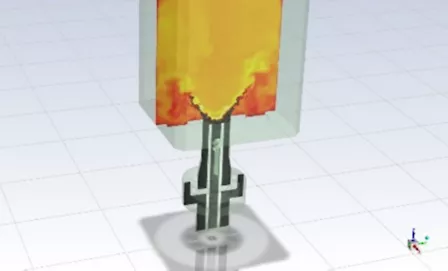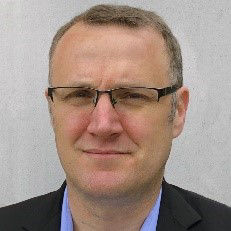
- This event has passed.
Accelerate Hydrogen Adoption Using Ansys Simulation: Part 4 – Utilization
April 24 @ 7:00 AM - 8:00 AM

Join us for the final webinar in the four-part series, which offers valuable insight into understanding how simulation can help to optimize gas turbine or furnace efficiency without compromising stability in the operating conditions range, control the NOx emission, predict polarization curves, optimize design, and improve the longevity of fuel cells.
Date :
April 24, 2024
Time :
10 AM EDT l 3 PM BST l 7:30 PM IST
Venue:
Online
About This Webinar
Hydrogen is one of the preferred energy vectors in the path to industry and transport decarbonization. Whether it is utilized in direct combustion or in fuel cells, the main product of reactions is water reducing to zero the carbon footprint at the utilization stage.
Combustion is used today in power generation and transportation. Other energy intensive industries consider hydrogen for their decarbonization as well. The natural transition is to keep combustion with Hydrogen. We’ll cover how simulation can help to optimize gas turbine or furnace efficiency without compromising the stability in the operating conditions range and control the NOx emission. Hydrogen is also used as an elementary component of e-fuel (synthetic fuel). E-Ammonia, which is produced from hydrogen is also regarded as a good energy carrier and will also be covered.
Fuel cell also offers several technical advantages to convert hydrogen into electrical or mechanical energy such as: high efficiency compared with other energy conversion (above 60 %), reduced emission (no NOx), flexibility of application from vehicle transportation to its integration into large power grids, low thermal losses.
The automotive industry already offers commercial fuel cell vehicles. Some demonstrators of fuel cells have also been used in aerospace industry. Simulation can help in the design and the operability of the fuel cells. It can help to evaluate all the efficiency losses: thermal losses, activation losses and the efficient use of the active surface area. Simulation also helps to predict polarization curves, to optimize design, and to improve longevity of the fuel cells.
The two main technologies covered will be PEMFC and SOFC.
This is the final webinar in the four part series to gain an understanding on how simulation can help to optimize gas turbine or furnace efficiency without compromising the stability in the operating conditions range and control the NOx emission, along with helping to predict polarization curves, to optimize design, and to improve longevity of the fuel cells.
To learn more about our Hydrogen Solutions visit Hydrogen Value Chain Solutions.
What you Will Learn
- How simulation can help burner or gas turbine design
- How to address specific hydrogen combustion challenges with simulation
- How simulation can guide you in operating a fuel cell or developing a fuel cell.

Presenters

Didier Bessette – Lead Application Engineer
Didier is based in our Paris office. One of his major focuses is combustion modeling for various industries (glass furnaces, steel reheating furnace, aluminum furnace…) and gas turbine combustor modeling to understand different characteristics of the GT combustor like fuel sprays and films, LES/RANS combustion modeling, pollutant predictions, conjugate heat transfer to predict the metal temperature. He has more than two decades experience of CFD modeling in diverse area: radiation, heat transfer, multiphase and reacting flow. He obtained his engineering degree in ENSEEIHT in Toulouse (France).
Rachid Malk – Lead Application Engineer
Rachid is based in our Paris office. He joined Ansys 13 years ago as a CFD Application Engineer. During these years, he was able to explore multiple CFD areas including multiphase flows, heat transfer and External Aero. He also focused on Electrification and particularly on 3D Electrothermal and thermal management of Batteries and Fuel Cells. He obtained his engineering degree at Grenoble Inp and his PhD at CEA Grenoble.











Has ASML Reached the Great Wall of China